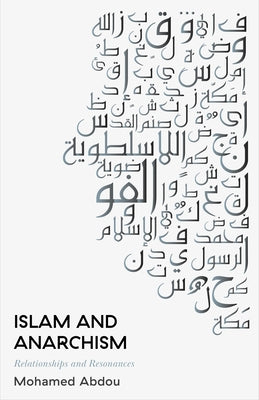Description
'One of the fiercest books I've ever read' - Jasbir K. Puar Discourse around Muslims and Islam all too often lapses into a false dichotomy of Orientalist and fundamentalist tropes. A popular reimagining of Islam is urgently needed. Yet it is a perhaps unexpected political philosophical tradition that has the most to offer in this pursuit: anarchism. Islam and Anarchism is a highly original and interdisciplinary work, which simultaneously disrupts two commonly held beliefs - that Islam is necessarily authoritarian and capitalist; and that anarchism is necessarily anti-religious and anti-spiritual. Deeply rooted in key Islamic concepts and textual sources, and drawing on radical Indigenous, Islamic anarchistic and social movement discourses, Abdou proposes 'Anarcha-Islam'. Constructing a decolonial, non-authoritarian and non-capitalist Islamic anarchism, Islam and Anarchism philosophically and theologically challenges the classist, sexist, racist, ageist, queerphobic and ableist inequalities in both post- and neo-colonial societies like Egypt, and settler-colonial societies such as Canada and the USA.
Author: Mohamed Abdou
Publisher: Pluto Press (UK)
Published: 06/20/2022
Pages: 352
Binding Type: Paperback
Weight: 1.14lbs
Size: 8.40h x 5.40w x 1.00d
ISBN13: 9780745341927
ISBN10: 0745341926
BISAC Categories:
- Social Science | Anthropology | Cultural & Social
- Religion | Islam | Theology
Author: Mohamed Abdou
Publisher: Pluto Press (UK)
Published: 06/20/2022
Pages: 352
Binding Type: Paperback
Weight: 1.14lbs
Size: 8.40h x 5.40w x 1.00d
ISBN13: 9780745341927
ISBN10: 0745341926
BISAC Categories:
- Social Science | Anthropology | Cultural & Social
- Religion | Islam | Theology
About the Author
Mohamed Abdou is a North African-Egyptian Muslim anarchist activist-scholar. He is currently a Visiting Scholar at Cornell University and an Assistant Professor of Sociology at the American University of Cairo. His twenty years of activist research and experience centers on Palestinian, Indigenous, Black, and people of colour liberation, and draws on the Indigenous Zapatista movement in Chiapas, Mexico, as well as his participation in the Egyptian uprisings of 2011.

